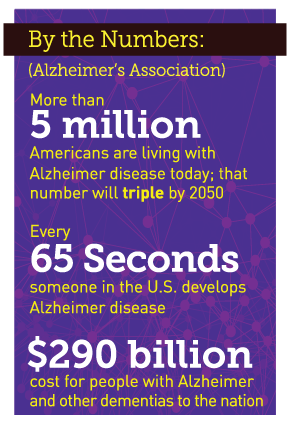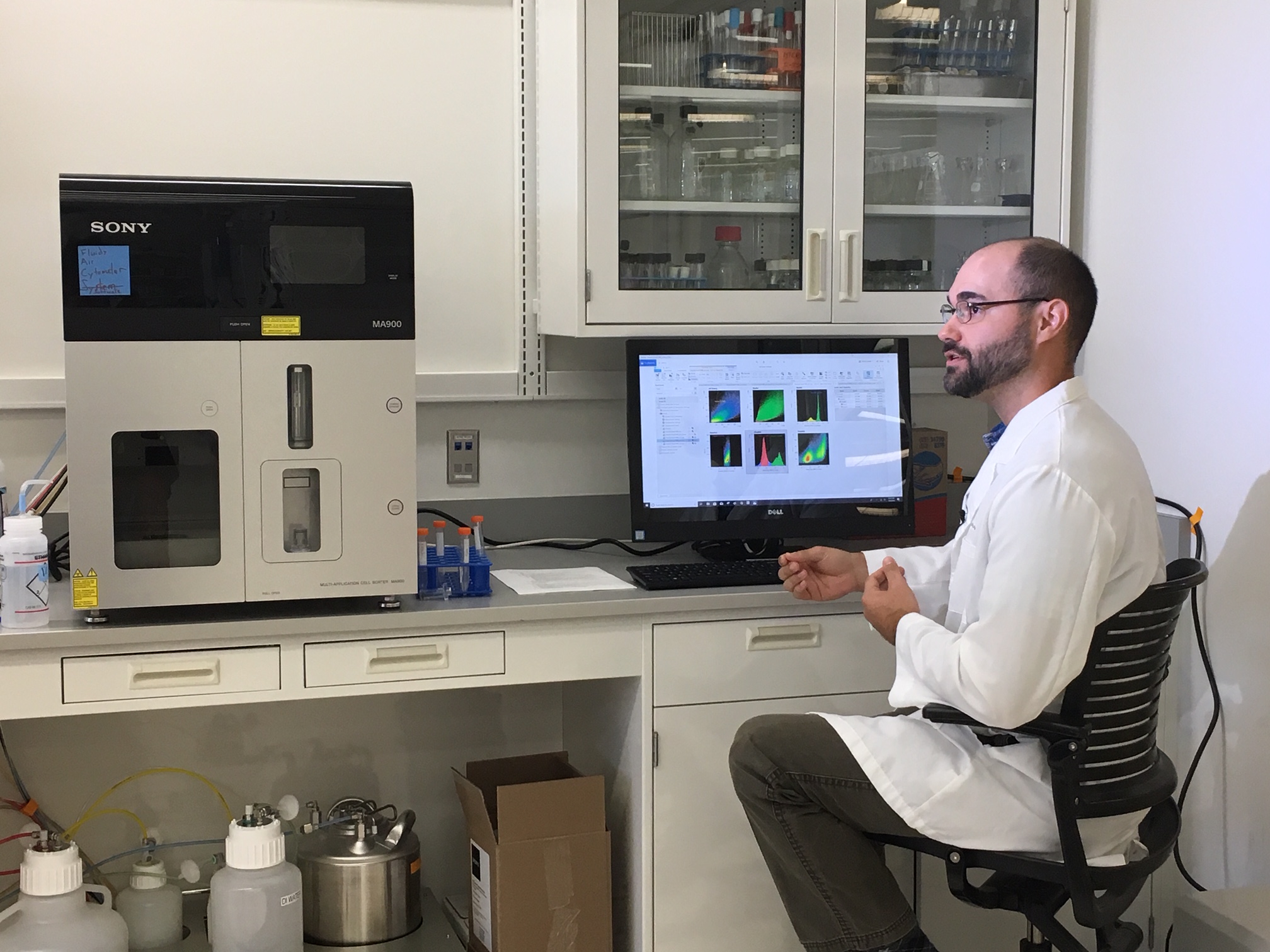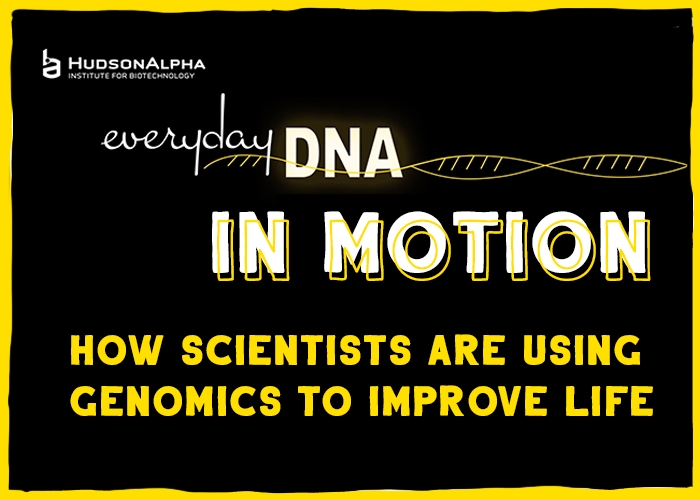Scientists at the HudsonAlpha Institute for Biotechnology secured a grant to create a high quality map of relatively unexplored genetic regions of the brain, specifically looking for the effects of Alzheimer disease.
According to the Alzheimer’s Association, this neurodegenerative disease is the 6th leading cause of death in the United States. While deaths from heart disease decreased by 9% from 2000-2017, deaths from Alzheimer disease have increased by 145%. With this new funding, researchers hope to explore the full range of brain changes that people with Alzheimer disease experience—ultimately laying the groundwork for research into early diagnostics and treatment. 
The Enduring Mystery
Geneticists have already identified several places in the genome that contribute to Alzheimer disease. These genes account for roughly 30% of familial risk. However, we still do not know how to explain the other 70% of hereditary Alzheimer cases. Even the parts of the genome we can link to Alzheimer aren’t particularly well understood.
This funding from the National Institute of Mental Health will allow HudsonAlpha scientists from the labs of Rick Myers, PhD, and Greg Cooper, PhD, to map out parts of the genome found in the brains of Alzheimer patients. The effort will focus on genes that are collectively called transcription factors.
Transcription factors help control how strongly other genes function. Think of the genome like a giant sound mixing board that you would find in a recording studio. Each knob is a gene. If a gene gets turned on or off, that affects the sound, but how much those genes are turned up or down also affects the overall sound. Transcription factors determine how far to twist the knobs.
Senior Scientist Jacob Loupe, PhD, explains, “We need to know how transcription factors change in the brains of people with Alzheimer disease, because that might help us understand the bigger picture of what is happening when someone contracts the disease.”
Drawing a Map
This supplemental funding expands on a previous grant to map out transcription factors in brain cells from people with various psychiatric disorders. Adding neurodegenerative disorders just makes sense, because the Institute’s current grant already provides for sequencing and mapping transcription factors in healthy brains as a control.
Now those same controls can contribute to understanding the differences between a healthy brain and one afflicted by Alzheimer disease.
“We’re going to study at least 16 different transcription factors,” Loupe says. “Then, we’ll use that data along with other published data on the genetics of Alzheimer disease to investigate how gene regulation might be contributing.”
Hope for the Future
A more complete understanding of the way the brain is impacted by Alzheimer disease could create the foundation for a new wave of research into earlier diagnosis and treatment methods.
HudsonAlpha dedicates a significant amount of resources to revealing the mechanisms of neurodegenerative diseases, always with the goal of pushing toward finding their causes and how their symptoms might be better addressed.
“We’re building a lot of momentum here,” Loupe notes. “Private funding has allowed our research to pick up speed, and that leads to more public funding. It’s all coming together.”
Neurodegenerative research at the Institute is also, in part, funded by the Memory & Mobility Program, which allows private donors to join in the efforts against these diseases. By bringing together private funders with public dollars, the Institute continues to push the fight forward, moving the front lines in the battle against neurodegenerative diseases. 
This research is supported by the National Institute Of Mental Health of the National Institutes of Health under Award Number R01MH110472. The content is solely the responsibility of the authors and does not necessarily represent the official views of the National Institutes of Health.
About HudsonAlpha: HudsonAlpha Institute for Biotechnology is a nonprofit institute dedicated to developing and applying scientific advances to health, agriculture, learning, and commercialization. Opened in 2008, HudsonAlpha’s vision is to leverage the synergy between discovery, education, medicine, and economic development in genomic sciences to improve the human condition around the globe. The HudsonAlpha biotechnology campus consists of 152 acres nestled within Cummings Research Park, the nation’s second largest research park. The state-of-the-art facilities co-locate nonprofit scientific researchers with entrepreneurs and educators. HudsonAlpha has become a national and international leader in genetics and genomics research and biotech education and fosters more than 40 diverse biotech companies on campus. To learn more about HudsonAlpha, visit hudsonalpha.org.
Media Contact:
Margetta Thomas
mthomas@hudsonalpha.org
256-327-0425



